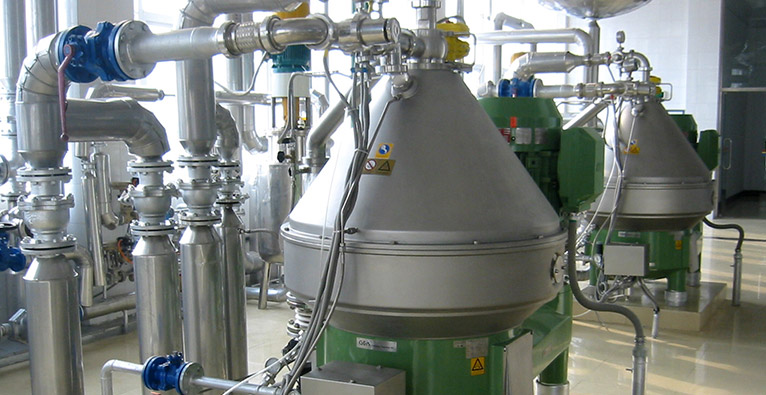
Crown’s biodiesel pretreatment plants are designed for continuous operation as well as for maximum efficiency and safety. The process is similar to refining oil for edible use, but without some of the extras that are needed to make an edible product. The main goal of pretreatment is to reduce both the phosphatides and fatty acid of the feed to the biodiesel (transesterification) plant. A typical neutralized and bleached feedstock will be suitable for use without the need for additional pretreatment.
- All equipment is typical for an industrial process and not simply a collection of tanks and plastic tubing
- Using a proven design ensures maximum equipment reliability and product quality
- Pretreating any substandard fats and oils saves on capital and operating expenses in the transesterification plant—an overall savings for an integrated plant
- A flexible pretreatment design allows a variety of biodiesel feedstocks to be processed in the same equipment
- Straightforward process which is similar to proven edible oil refining technologies
- Pretreatment can be designed to also allow the production of edible oil in order to take advantage of the ups and downs of variable industry conditions
- Phosphatide and fatty acid byproducts are similar to the ones produced in an edible oil plant—enabling byproduct sales to an existing market